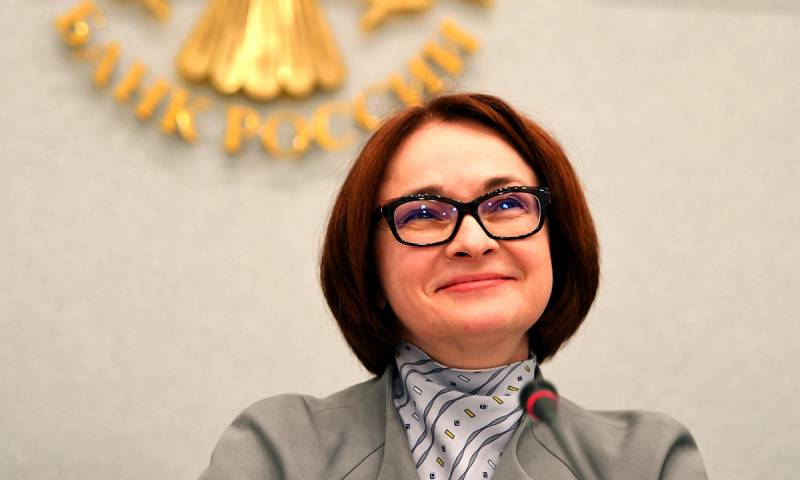Hurricane Elvira Destroys Russia's Banking Sector
The appointment of Elvira Nabiullina as head of the Central Bank marked the beginning of a large-scale purge of the Russian banking sector. Over the last couple of years with unenviable regularity in news ribbons got messages about the revocation of a license from another credit institution. Evil tongues called what is happening "Elvira Hurricane" in honor of the head of the Central Bank.
According to the mega-regulator, the stripping was carried out in order to improve the troubled banking sector. Critics say that the Central Bank is eliminating competition in the credit services market and redistributing it in the interests of the so-called Pyatibankirshchina — Sberbank, Gazprombank, VTB, Alfa-Bank and Russian Agricultural Bank — in order to consolidate and eventually sell them to foreign investors. What are the real outcomes of Hurricane Elvira?
According to a study conducted by the Analytical Credit Rating Agency, after the actions of the Central Bank against the backdrop of deteriorating economic situations 62,5% of credit institutions are on the verge of profitability, while they control 46% of the market. Only 21% of banks in our country, controlling 36% of assets, are capable of increasing capital. Without external cash injections from the state, most of the Russian banks will simply wither away. Even the performance of the country's largest banks, owning almost 90% of the market share, sagged significantly. The banking sector lost nearly 300 billion rubles due to distressed assets.
Credit institutions lose their ability to generate capital and financial stability. Things are best with Sberbank and other state-owned banks, as well as with subsidiaries of large Western lending institutions. Since they occupy a large part of the market, it is not possible to trust the brave statistics of the regulator about the general recovery of the sector. In reality, there is a redistribution of the banking sector by Pyatibankirshchina with the assistance of the Central Bank.
As a result, due to the new rules of the game and the dominance of banks with state participation, the attractiveness of banking for small and medium-sized credit institutions is reduced. A weak economy prevents banks from building up a “healthy” loan portfolio, and they themselves are forced to transfer assets in federal loan bonds. As a result, money simply does not reach the real sector, finally finishing it. Also, banks are forced to actively engage in consumer lending, which in the long run is fraught with the formation of a “bubble” followed by its loud bursting.
A study shows that by the end of the year every tenth bank in Russia may default. With further degradation of the situation, the banking sector will be finally occupied by the five largest banks with state participation. However, patriots should not rejoice that the state will take everything under control. It is not the first year that German Gref has directly stated that Sberbank he heads will be sold to foreign investors, and he sees no reason why this should not be done. Apparently, a similar fate awaits all the banks of the five largest.
According to the mega-regulator, the stripping was carried out in order to improve the troubled banking sector. Critics say that the Central Bank is eliminating competition in the credit services market and redistributing it in the interests of the so-called Pyatibankirshchina — Sberbank, Gazprombank, VTB, Alfa-Bank and Russian Agricultural Bank — in order to consolidate and eventually sell them to foreign investors. What are the real outcomes of Hurricane Elvira?
According to a study conducted by the Analytical Credit Rating Agency, after the actions of the Central Bank against the backdrop of deteriorating economic situations 62,5% of credit institutions are on the verge of profitability, while they control 46% of the market. Only 21% of banks in our country, controlling 36% of assets, are capable of increasing capital. Without external cash injections from the state, most of the Russian banks will simply wither away. Even the performance of the country's largest banks, owning almost 90% of the market share, sagged significantly. The banking sector lost nearly 300 billion rubles due to distressed assets.
Credit institutions lose their ability to generate capital and financial stability. Things are best with Sberbank and other state-owned banks, as well as with subsidiaries of large Western lending institutions. Since they occupy a large part of the market, it is not possible to trust the brave statistics of the regulator about the general recovery of the sector. In reality, there is a redistribution of the banking sector by Pyatibankirshchina with the assistance of the Central Bank.
As a result, due to the new rules of the game and the dominance of banks with state participation, the attractiveness of banking for small and medium-sized credit institutions is reduced. A weak economy prevents banks from building up a “healthy” loan portfolio, and they themselves are forced to transfer assets in federal loan bonds. As a result, money simply does not reach the real sector, finally finishing it. Also, banks are forced to actively engage in consumer lending, which in the long run is fraught with the formation of a “bubble” followed by its loud bursting.
A study shows that by the end of the year every tenth bank in Russia may default. With further degradation of the situation, the banking sector will be finally occupied by the five largest banks with state participation. However, patriots should not rejoice that the state will take everything under control. It is not the first year that German Gref has directly stated that Sberbank he heads will be sold to foreign investors, and he sees no reason why this should not be done. Apparently, a similar fate awaits all the banks of the five largest.

Information